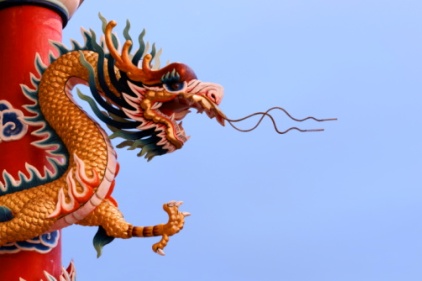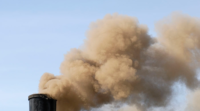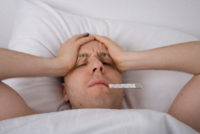 Hong Kong’s Centre for Health Protection (CHP) of the Department of Health announced Dec. 29 that it was investigating two suspected cases of Middle East Respiratory Syndrome (MERS) affecting a nine-year-old boy and his six-year-old sister.
Hong Kong’s Centre for Health Protection (CHP) of the Department of Health announced Dec. 29 that it was investigating two suspected cases of Middle East Respiratory Syndrome (MERS) affecting a nine-year-old boy and his six-year-old sister.
The patients, with good past health, travelled from Dubai to Hong Kong on December 27. They developed fever, sore throat and cough since December 28 and 29 respectively. The children attended the general outpatient department of a private hospital for management and were subsequently transferred to Queen Elizabeth Hospital for isolation and treatment.
They have been in stable condition, according to press reports.
Initial investigations by the CHP revealed that they had no contact with camels or animals, or visits to health-care facilities, in Dubai. Their travel collaterals have remained asymptomatic.
The patients' respiratory specimens will be taken for preliminary laboratory testing by the Public Health Laboratory Services Branch (PHLSB) of the CHP.
The CHP's investigation is continuing.
Skip the camel rides
"We strongly advise travel agents organizing tours to the Middle East not to arrange camel rides and activities involving camel contact, which may increase the risk of infection. Travelers should avoid going to farms, barns or markets with camels, and avoid contact with animals (especially camels), birds, poultry or sick people during travel," a spokesman for the DH said.
"Scientific studies support the premise that camels serve as the primary source of MERS Coronavirus (MERS-CoV) infecting humans.
A study further suggested that human MERS-CoV infections could be transmitted through close contact with infected camels," the spokesman explained.
"MERS is a statutorily notifiable infectious disease. No human cases have been recorded so far in Hong Kong," the spokesman said.
Whenever there is a suspected case, particularly involving patients with travel history to the Middle East, the CHP will release information to the public as soon as possible," the spokesman added.
Early ID important
Early identification of MERS-CoV is important, but not all cases can be detected in a timely manner, especially mild or atypical cases. Health-care workers (HCWs) should maintain vigilance and adhere to strict infection control measures while handling suspected or confirmed cases to reduce the risk of transmission to other patients, HCWs or visitors. Regular education should be provided.
Travelers returning from the Middle East who develop respiratory symptoms should wear face masks, seek medical attention and report their travel history to the doctor.
Travelers are reminded to take heed of personal, food and environmental hygiene:
- Avoid going to farms, barns or markets with camels;
- Avoid contact with animals (especially camels), birds, poultry or sick people during travel;
- Wash hands regularly before and after touching animals in case of visits to farms or barns;
- Do not consume raw or undercooked animal products, including milk and meat, or foods which may be contaminated by animal secretions, excretions (such as urine) or products, unless they have been properly cooked, washed or peeled;
- Seek medical consultation immediately if feeling unwell;
- Avoid visits to health-care settings with MERS patients;
- Wash hands before touching the eyes, nose and mouth, and after sneezing, coughing or cleaning the nose; and
- Wash hands before eating or handling food, and after using the toilet.
The public may visit pages below for more information and health advice:
* The CHP's MERS page (www.chp.gov.hk/en/view_content/26511.html);
* The MERS page of the DH's Travel Health Service (www.travelhealth.gov.hk/english/popup/popup.html); or
* The latest news of the World Health Organization (www.who.int/csr/don/archive/disease/coronavirus_infections/en).



